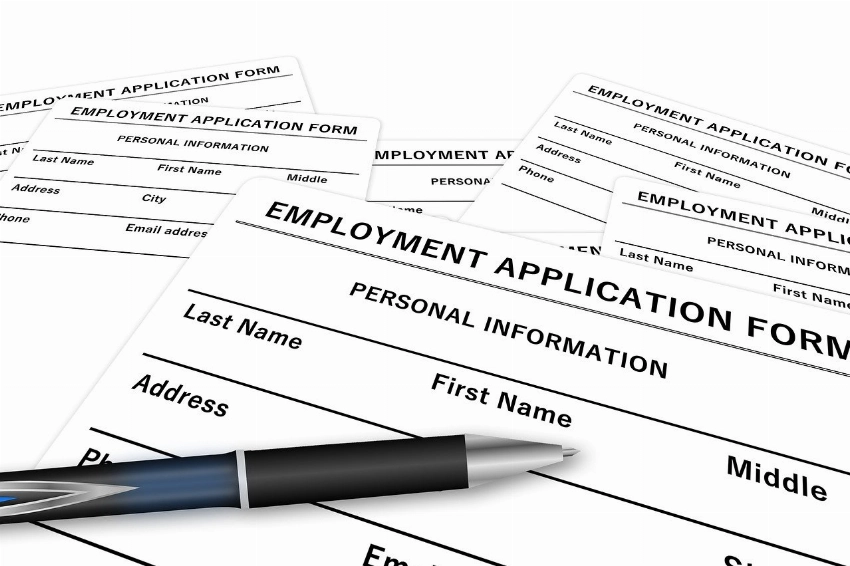Key Highlights
- How Can You Apply For Jobs In Germany?
- What are the Job Search Platforms for Applying for Jobs in Germany?
- What is the German Job Application Process? A Step-by-Step Guide to Land Your Dream Job
- What are the Key Requirements for Job Applications in Germany 2025?
- What are the Qualifications That Are Needed For Jobs in Germany? Updated 2025
- Top 10 Best Jobs in Germany For Indians in 2025
- What is the Best Time to Apply for Jobs in Germany 2025?
- What are the Economic Factors Influencing Job Markets in Germany 2025?
- What are the Advanced ATS Optimisation and Digital Application Strategies for Jobs in Germany 2025?
- How to do Salary Negotiation and Compensation Benchmarking in Germany 2025?
- Latest Facts & News
- Conclusion
Germany offers abundant job opportunities for skilled professionals worldwide. Whether you are a recent graduate or an experienced worker, understanding the job application procedure in Germany is essential. This guide provides actionable steps, expert insights, and the latest job market trends to help you successfully apply for jobs in Germany.

How Can You Apply For Jobs In Germany?

Getting a job in Germany requires knowing how the recruitment process is structured and using the platforms appropriately. The German job market follows specific protocols, and the differences between other international job markets are notable; therefore, proper preparation is necessary to ensure success.
Primary Application Methods:
-
Online Job Portals: This is the most common strategy when foreign applicants are involved
-
Direct: The direct application to the Company Career Pages. Direct application using employer websites is possible for large organisations.
-
LinkedIn and XING Relationship: Based on Professional Networks
-
Recruitment Agencies: Target a particular industry.
-
Job Fairs and Events: Such as so-called virtual events, such as the upcoming Make it in Germany 2025 event on February 20, 2025
Also Read: Make It in Germany Jobs: New Jobs Process & Expert Tips
Modern Application Landscape:
The digital revolution has redefined the procedure of job application in Germany. PDF format application correspondence through email has gained currency as postal applications in physical files are hardly made. Most companies want applications made using their career sites or emailed as a standard document format.
Critical Success Factors:
-
Standardisation: CVs (Lebenslauf document), cover letters (Anschreiben), and other relevant certificates are required by the applications in German style.
-
ATS Optimisation: 60 per cent of companies are now using AI screening mechanisms, so apps have to be formatted in a way that can be parsed digitally
-
Language Requirements: Although English-speaking jobs are rising, most applicants must know German to get a job (a minimal B1 level is required).
What are the Job Search Platforms for Applying for Jobs in Germany?

The German digital employment system has various platforms categorised by sectoral and field standards. Knowing the platform's specialisation is essential when you fill out the online applications.
Essential Job Portals 2025:
Here are the critical job portals for 2025:
|
Platform |
SpecializSpecialization |
ures |
|
StepStone.de |
General professional roles |
Industry-leading German job board with advanced filtering |
|
Indeed.de |
Comprehensive listings |
Global platform with extensive German market coverage |
|
|
Professional networkinNetworking |
l for corporate roles and international companies |
|
|
German business network |
Locally-focused Networking on LinkedIn |
|
Arbeitsagentur.de |
Official government portal |
Federal Employment Agency's job exchange |
|
Monster.de |
Multi-industry focus |
Established platform with career resources |
|
Experteer |
Executive positions |
Premium platform for senior-level opportunities |
|
Glassdoor |
Company insights |
Job listings with salary data and company reviews |
|
Jobrapido |
Aggregated listings |
Meta-search engine collecting from multiple sources |
|
Euraxess |
Academic/research |
SpecialisSpecializedemic and research positions |
Platform Optimisation Strategies:
Here are some platform optimisations:
-
Profile Completeness: Ensure that your profile completeness on the networking sites is 100 per cent complete
-
KeyWord Integration: Integration of German and English keywords in the industry has been used
-
Keeping up to date: Maintaining profiles with the latest accomplishments and skills is good practice
-
Job Alerts: Following the target employers, you will receive instant job alerts
SpecialisSpecializedechniques:
When you apply online in Germany, use sophisticated search filters such as place preferences, salary rate, and the nature of contracts. Many platforms have developed AI-driven job matching that will learn how you apply to jobs and recommend opportunities.
What is the German Job Application Process? A Step-by-Step Guide to Land Your Dream Job
The German job application process is a procedural process that requires attention to detail and culture. This book covers every possible issue that would satisfy German employers and can bypass recent ATS filtering devices.
Phase 1: Research and Preparation (Weeks 1-2)
Here are the phase 1 steps:
-
Target Identification: Company culture research: Look at company culture research websites like Glassdoor to find out about salary expectations and the culture of the companies
-
Qualification Examination: Check the Athena database and ZAB (Central Office for Foreign Education) to determine whether your university and degree will be recognised
-
Market Analysis: Conduct a market audit of job specs and find out any duplicated requirements or any skills necessary
Phase 2: Document Creation (Weeks 2-3)
Here are the phase 2 steps:
-
The German (Lebenslauf):
-
Standardisation in Europe by use of the Europass format
-
Include additional details such as personal information, professional photo, education, employment experience, set of skills and languages
-
A reverse chronology, including specific dates, is something to remember
-
Cover Letter (Anschreiben):
-
Name of a particular hiring manager whom you have known
-
For example, the feeling of knowing about the company, and being motivated by the job position
-
Not more than one page, well structured and businesslike
-
Supporting Documents:
- Notarize school teaching certificates and translate them
-
Write references of employment (Arbeitszeugnisse)
-
Include certificates of knowledge of a language (German B1+ level)
Phase 3: Application Submission (Week 3-4)
Here are the phase 3 steps:
-
ATS Optimisation:
-
No use of images or complex tables should be made
-
An important strategy to follow is to use job description keywords
-
Save as PDF with good names
-
Submission Methods:
-
Email applications: No more than a single PDF up to 10MB
-
Online portals: Observance of requirements for uploads:
-
Professional networks: Use messaging services on the services
Phase 4: Interview Preparation (Weeks 4-6)
Here are the phase 4 steps:
-
Technical Preparation:
-
Know how to answer STAR technique (Situation, Task, Action, Result) questions (competency-based questions)
-
Be ready to do the German and English parts of the interview
-
Company values, latest news, company issues, challenges, and much more
-
Practical Arrangements:
-
Preparation of video interviewing technology
-
Devise questions on the part of roles and career growth
-
Copies of the application documents should be taken when interviewing
Phase 5: Follow-up and Negotiation (Weeks 6-8)
Here are the phase 5 steps:
-
Professional Follow-up: An email should be sent within 24 hours of the interview to say Thank You
-
Salary Negotiation: Salary research using Glassdoor, Salary Calculator
-
Decision Timeline: The German application processes usually take 4-6 weeks
What are the Key Requirements for Job Applications in Germany 2025?
Germany has specific requirements for job applicants to apply for a job in Germany online, including language proficiency, accredited qualifications, and appropriate visa documentation. Knowing such requirements would ease the application process and increase the odds of employment acquisition. The section details what one needs to learn about how to apply for jobs in Germany.
Language Proficiency For Jobs in Germany

Language skills play a crucial role in job applications in Germany. While many international companies offer English-speaking roles, most jobs require at least some proficiency in German. Employers often expect applicants to demonstrate language skills based on their language proficiency when applying for jobs in Germany.
Common European Framework of Reference for Languages (CEFR)
Here is a breakdown of the Common European Framework of Reference for Languages
|
CEFR Level |
Proficiency Description |
Commonly Required For |
|
A1 - A2 |
Basic knowledge, simple communication |
Entry-level hospitality, retail, and internships |
|
B1 |
Intermediate conversation, work-related communication |
Customer service, administrative roles |
|
B2 |
Fluent workplace communication |
Healthcare, engineering, IT, finance |
|
C1 - C2 |
Near-native or native fluency |
Legal, academic, and managerial roles |
Exceptions for English-Speaking Jobs
Specific industries, such as IT, engineering, or research, do not regard German as compulsory for their jobs. However, knowing German would make a difference for a candidate, furthering chances and integrating into the organisation, making it easier for you to apply for jobs in Germany.
How is Proficiency Tested?
In case you are asked to prove your knowledge of German for a job application, be prepared to take one of the following tests:
-
TestDaF (Test Deutsch als Fremdsprache): A qualification that serves for both academic and professional purposes.
-
Goethe-Zertifikat: Accepted by many institutions for visa and work applications.
-
Telc Deutsch: Accepted for vocational qualifications and professional purposes.
-
DSH (Deutsche Sprachprüfung für den Hochschulzugang): Generally required by universities for admission.
Putting in some effort to learn German may be a deciding factor when it comes to job opportunities for some individuals to make German their career and apply for jobs in Germany.
Also Read: Find Mechanical Engineering Jobs in Germany: A Guide
What are the Qualifications That Are Needed For Jobs in Germany? Updated 2025
Recognition of foreign university degrees and respectful qualifications is an integrated feature of many professions here in Germany. The ZAB (the Central Office for Foreign Education) evaluates the ability equivalences of foreign qualifications relative to German equivalents.
Qualification Recognition in Germany for a Job
Here are some qualifications needed to get jobs in Germany:
1. Recognition Database: You may have to see if your degree is recognised through the "Anabin" database.
2. Documents Application to ZAB: Candidates must send degree certificates, transcripts, and translations.
3. Draft Comparability Certificate: In case of successful evaluation, you are then provided with a statement of comparability.
Sector-Specific Recognition Requirements For Jobs in Germany
Some professions, mainly regulated ones, require additional verification:
|
Sector |
Recognition Authority |
Additional Requirements |
|
Engineering |
German Chamber of Engineers |
May require supplementary courses |
|
Healthcare (Doctors, Nurses, Pharmacists) |
Local Medical Councils (Ärztekammer) |
State licensing exams may apply |
|
Teaching |
State Education Authorities |
Additional training may be required |
|
Law |
German Bar Association |
German law degree is often necessary |
Formal recognition is not mandatory for unregulated professions (e.g., marketing, IT, finance), but evaluating your credentials can still strengthen your job application.
Ensuring that your qualifications align with German standards is crucial in securing employment and advancing your career in Germany.
Top 10 Best Jobs in Germany For Indians in 2025
Here is a list of high-demand jobs along with their average annual salaries so you can choose and apply for jobs in Germany:
|
Job Role |
Average Salary (EUR/year) |
Average Salary (INR/year) |
|
Chief Executive Officer (CEO) |
150,000 |
13,735,500 |
|
Doctor/Surgeon |
80,000 – 120,000 |
7,325,600 – 10,988,400 |
|
IT Manager |
70,000 – 110,000 |
6,409,900 – 10,073,700 |
|
Pilot |
70,000 – 100,000 |
6,409,900 – 9,157,000 |
|
Portfolio Manager |
80,000 – 130,000 |
7,325,600 – 11,904,100 |
|
Legal Consultant |
80,000 – 110,000 |
7,325,600 – 10,073,700 |
|
Engineering Manager |
65,000 – 100,000 |
5,952,050 – 9,157,000 |
|
Tax Advisor |
60,000 – 90,000 |
5,494,200 – 8,241,300 |
|
Software Architect |
70,000 – 100,000 |
6,409,900 – 9,157,000 |
|
Data Scientist |
65,000 – 95,000 |
5,952,050 – 8,699,150 |
As of February 26, 2025, the exchange rate is 1 Euro equals approximately 91.57 Indian Rupees.
Also Read: Top 10 Highest Paid Jobs In Germany
What is the Best Time to Apply for Jobs in Germany 2025?

Time will play a key role when you apply to Germany, especially when making proper inquiries. The application response can increase by 40 per cent just by knowing what season of the year to use, what cycle to follow in specific industries, and what time window is best.
Optimal Application Seasons:
Here is a table showing the optimal application seasons:
|
Quarter |
Prime Industries |
Hiring Volume |
Strategic Advantages |
|
Q1 (January-March) |
Technology, Finance, Healthcare |
Highest |
New budget allocations, fresh hiring mandates |
|
Q2 (April-June) |
Engineering, Consulting, Tourism |
High |
Spring project launches, summer season preparation |
|
Q3 (July-September) |
Retail, Education, Manufacturing |
Moderate |
Back-to-business momentum, autumn project planning |
|
Q4 (October-December) |
Management, Administration |
Low |
Holiday slowdown, limited interviewing |
Peak Application Windows:
-
January-February: During this waiting time, the applications should be made during this season to get the best applications. New year recruiting plans and post-holiday budgetary allowances make the most of the situation. Mid-January, End of February: This particular phase shows the best response level on behalf of the employers
-
September-November: Low peak: the firms launch their projects in the summer because there are no breaks.
Daily and Weekly Timing Strategy:
Here sis the strategy to follow:
-
The Best Time to Submit: 6:00 AM - 10:00 AM German time has been calculated to make the HR teams view the applications when they are most productive
-
Best Days: Tuesday-Thursday to get the most visibility and attention
-
Avoid: Late afternoons, Fridays and German public holidays when there will be a significant decline in the response rates
Industry-Specific Timing:
These are the industry-specific timings for the same:
-
Tech Industry: Recruitment is continuous,, and the busiest periods were Q1 and Q3
-
Healthcare: Seasonal, but there is an evergreen market with just a greater demand in Q1 and Q4
-
Tourism/Hospitality: March-April promising high hires in terms of summer employment being lined up
-
Agriculture: The harvest preparation starts in March, with the employment season in June
-
Education: Hiring is mainly done in Q2 when semesters begin in September
2025 Strategic Calendar:
-
January 20-February 28: First-round application. This. This is the standard application process.
-
March 15-April 30: seasonal roles/tourism applications
-
September 1-November 15: Secondary general hiring wave
-
December: It is time to work on Q1 2026 preparation, not an instant application.
Also Read: Top IT Jobs in Germany: Best Jobs for IT Professionals
What are the Economic Factors Influencing Job Markets in Germany 2025?
Here are some factors that influence job markets:
-
Industry growth has created increased demand for IT and engineering positions.
-
Growing inflation and changing government policies will work positively in favour of importing skilled labour.
-
Visa reforms will see simpler procedures regarding work permits from 2025 onwards.
What are the Advanced ATS Optimisation and Digital Application Strategies for Jobs in Germany 2025?

Employers now use cutting-edge techniques in Applicant Tracking Systems (ATS) to deal with job application numbers in Germany. So, digital optimisation is part of the application process when applying to German employers online. Learning about these systems can significantly increase your success rates in using applications.
ATS Landscape in Germany 2025:
More than 60 per cent of employers in Germany are deploying AI-driven recruitment tools, and the largest platforms, such as SAP SuccessFactors, Workday, and Personio, occupy the market. These systems automatically screen applications before people review them; thus, compatibility with ATS is mandatory.
Document OptimisatOptimizationes:
Here are some document optimisations:
CV Formatting for ATS Success:
-
Format: PDF preferred (not a Word document that can be typed in any different way)
-
Font Selection: ATS-friendly fonts, such as Arial, Calibri, or Times New Roman, are to be used
-
Section Title: A unique title (Work Experiences, Education and Skills)
-
Keyword Integration: Insert verbatim items in the job descriptions in a natural manner in the content
-
Contact Information: Please write in a standard format (no graphics and special characters) in the header
Cover Letter ATS Compliance:
-
Put: avoid using tables, text boxes and multi-column formats.
-
Keyword Density: 2-3 per cent keyword density should be avoided to be non-spammy.
-
Action Words: Use dynamic verbs synonymous with the job description words..
-
Company Name Reference: Diarise the company name at least 2/3 times in the letter.
Advanced Digital Strategies:
Here are some advanced digital strategies to achieve success:
CV Mirroring Technique:
Study job descriptions of target jobs, and include the same terms in your CV. This mirroring strategy will make ATS systems realise trealizer qualifications are categorical fulfillments of the position requirements.
LinkedIn Profile Synchronisation:
Sync up your LinkedIn profile and CV to match, as many German employers check both places. Put the identical keywords and accomplishments on both platforms.
Application Tracking:
So prepare spreadsheets to track applications, i.e., names of companies and an application date.
-
Particular keywords to be employed in every application
-
Response and interview results
-
When feedback is available in the ATS system
Testing and Refinement:
Conduct a regular test of your CV using online ATS scanners to see where the possible parsing problems may occur. Websites such as Jobscan offer free compatibility analysis with ATS programs that draw attention to areas of improvement.
- Germany Opportunity Card (Chancenkarte): Revolutionary 2025 Visa System
- Germany Opportunity Card (Chancenkarte): It is the most critical immigration reform in decades, and it allows international professionals to apply for a job in Germany without first securing an employment offer.
What is the Opportunity Card?
The Chancenkarte was introduced in 2025, giving non-EU citizens a 12-month residence permit to seek a job in Germany. It was revolutionary since it did not require the usual procedure, which was to get a job first in their home country, then come in to take the job. People could now be present when they apply for this visa.
Eligibility Requirements:
The eligibility requirements are mentioned below:
-
Educational Qualification: a university degree, or qualified vocational training
-
Getting in on Points: Lower cut off based on qualifications, language expertise, age and relation to Germany
-
Financial Proof: Proofs that reasonably will allow its stay for 12 months
-
Proficiency in Language: German language level or English language,a etc.Level of certification
Key Advantages for Job Seekers:
Here are some key advantages that job seekers should look for:
-
Having a Physical Presence: I can go to in-person interviews and Networking
-
Market Exploration: Learn the culture of the German workplace yourself
-
Long-range Schedule: A whole year to find the right job
-
Vacation: 20 days of paid vacation a year
-
Family Inclusion: Dependent members of the family can accompany cardholders
Application Process:
The Chancenkarte application should be submitted at German consulates abroad in your country of residence, which takes about 4-8 weeks to complete. Educational qualifications, language certificates, financial records, and filled points calculation forms are the required issued credentials.
Strategic Utilisation of the full extent of the Opportunity Card and job seeker visa period to develop professional connections, visit industry fairs, which may include the future virtual fair "Make i" in Germany 2025 (February 20, 2025), and have informational interviews with target employers.
Also Read: Most Demanded Jobs in Germany: Latest Pay, Jobs & Scope
How to do Salary Negotiation and Compensation Benchmarking in Germany 2025?
As with every other country, it would be essential to learn German salary rates and the negotiation rules to get the best rates when you finally secure jobs in Germany. This is because the compensation market in Germany works on particular structures that are nowhere near the rest of the international markets.
German Salary Structure Fundamentals:
Base salary in the German compensation package includes additional benefits (Zusatzleistungen) and statutory contributions. As soon as one knows such elements, negotiations and realistic expectations become possible.
2025 Salary Benchmarks by Sector
These are the 2025 salary benchmarks by sector:
|
Industry |
Entry Level (€) |
Mid-Level (€) |
Levelr Level (€) |
|
IT/Software |
45,000-55,000 |
65,000-85,000 |
90,000-120,000 |
|
Engineering |
48,000-58,000 |
68,000-88,000 |
95,000-125,000 |
|
Healthcare |
42,000-52,000 |
62,000-78,000 |
85,000-110,000 |
|
Finance |
50,000-65,000 |
75,000-95,000 |
100,000-140,000 |
|
Marketing |
38,000-48,000 |
55,000-72,000 |
78,000-100,000 |
Negotiation Strategies and Cultural Considerations:
These negotiation strategies and cultural considerations can be beneficial:
Research and Preparation:
Use Glassdoor Salary Calculator and Kununu to get proper data on compensation. Employers in Germany require job applicants to submit objective claims for on-pay with justification for market research and Qualification:
The salaries are usually discussed at a later stage of interviewing or after the wages have been proposed. The German business culture encourages straightforward communication, so salary discussions are open and even welcome.
Total Compensation Analysis:
Here is an analysis of the total compensation:
Beyond Base Salary, Evaluate:
-
Vacation Days: standard is 20-30 days a year in Germany
-
Christmas/Holiday Bonuses: These are often worth a month's salary and can be 2 months.
-
Company Pensions Contribution: Betriebliche Altersvorsorge programs
-
Professional Development: The work and cost of training and education
-
Health Insurance: Plans and Health Programs of the higher levels
Negotiation Tactics:
-
Presentations of Market Data: see personal salary surveys, reports in the industry
-
Skills Premium: Receive a step ahead in the special eligibility and language skills performance. Metrics: Salary review of performance should be recommended
-
Non-Salary Benefits: Bargain to have flexible work hours, extra vacation or career growth chances. Regional Variations:
Resting on their regional difference, German regions have very different salary expectations:
-
Munich/Frankfurt: 15-25 per cent of the national average
-
Berlin: 5-10 per cent below the average of the rest of the country, and low costs of living
-
Hamburg/Stuttgart: Normal conditions acceptable to the naLevell Level
-
Rural District: 10-20per cent less than the central urban ground with much less expenditure on life.
Latest Facts & News
The situation in the job market of Germany remains excellent in 2025 because highly skilled working specialists can achieve astonishing rates of success in this country. The latest news shows that quite considerable shifts are taking place, and they directly affect job seekers:
Key Market Statistics 2025:
-
The unemployment rate in Germany was at about 5.6 per cent in January 20,25, and this hit continued to rank among regions in Europe with the most stable job markets
-
AI-powered selection tools that employers use to sort applications have already transformed how Germans find employment, with more than 60 per cent of employers adopting the technology.
-
New visa reforms will bring 90,000 skilled workers into the country annually.
-
The German companies provide 40% of remote and hybrid work models, an outcome of the pandemic that reshapes working environments.
-
The growth of English-speaking roles is unprecedented. The most affected areas include the tech and healthcare industries
2025 Legislative Changes:
The German Opportunity Card (Chancenkarte) offers the prospect of non-EU citizens being granted a 12-month visa so that they can seek employment in Germany itself. This significant policy change removed the usual process of obtaining a job offer before coming to this country, making the immigration process a lot easier.
Digital Transformation Impact:
With modern recruitment solutions, applicants must prepare their applications to get approved by Applicant Tracking Systems (ATS). Such technological change demands proper placement of keywords and a simplified format to achieve visibility of applications.
Conclusion
Strategic planning and understanding hiring trends are key when you apply for jobs in Germany. Tailoring your CV to specific platforms and being aware of visa regulations will help elevate your prospects. Apply your knowledge of market trends and adjust your job search strategy accordingly for better results as you apply for jobs in Germany.
To learn more about Germany's job market, visit Terra Tern now!






